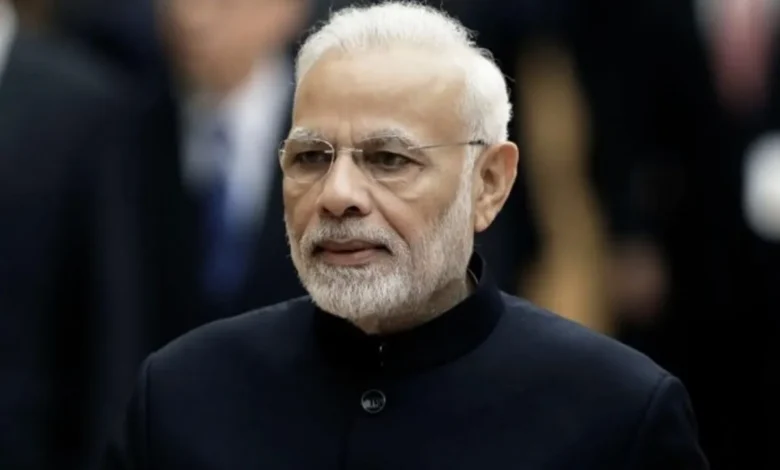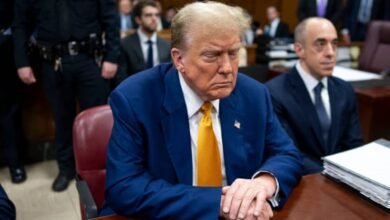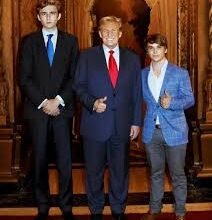
India’s ruling Bharatiya Janata Party, or BJP, had hoped for a landslide victory in the country’s six-week general election – the largest display of democracy, by far, in a year of voting around the world. But the party, led by Prime Minister Narendra Modi, scored 240 parliamentary seats in the final tally. It will need the help of its coalition partner, the National Democratic Alliance, to meet the requirement of 272 seats to form the government.
The Conversation U.S. spoke with Sumit Ganguly, distinguished professor of political science and the Tagore chair in Indian Cultures and Civilizations at Indiana University, to understand more about the election results and what they mean for Indian democracy.
Part of the answer lies in the Modi government’s failure to realize that while economic benefits had been substantial, their distribution has been uneven. India has seen a growth in inequality and persistent unemployment both in rural and urban areas. Unemployment of those aged 20 to 24 years is at a high of 44.49%. And that is the overall national number; that data does not tell us that it may be much worse in certain regions.
The other explanation is that Modi’s exploitation of historic Hindu-Muslim tensions seems to have run its natural course. You can beat the religious drum – and Modi did with rhetoric including calling Muslims “infiltrators” – but then the day-to-day issues of jobs, housing and other such necessities take over, and these are the things people care about the most.
BJP made a miscalculation, in my analysis. It failed to realize that in a country where only 11.3% of children get adequate nutrition, Hindu pride cannot be eaten – ultimately, it’s the price of potatoes and other essentials that matter.
Let’s talk about Uttar Pradesh, the northern Indian state with 80 parliamentary seats. It plays a crucial role in any national election, and Modi and his alliance are set to lose the state. What happened?
It’s another example of the same miscalculation we are seeing nationally by the BJP. The chief minister of the state,Yogi Adityanath, saw himself as a firebrand Hindu nationalist leader and likely a successor of Modi.
But he, too, failed to take into account how his policies were playing out in the poorer segments of the state’s population, who are mainly Muslims and those at the bottom of India’s caste hierarchy.
He pursued grand infrastructure projects such as new highways and airports, and those might well have appealed to the middle class – but not to the poor.

Additionally, years of presiding over a state government that has used police power to suppress dissent, often those of the poor and marginalized, have taken their toll on Adityanath’s support.
The gains in the south are perplexing and will require more data on voting patterns for a more accurate analysis.
Historically, the BJP has not been able to make inroads into the southern states for a number of reasons. These include linguistic subnationalism owing to the hostility toward Hindi.
The other issue in the south is that the practice of Hinduism is quite different, including festivals and other regional traditions. The BJP’s vision of Hinduism is based on the “great tradition” of northern India, which believes in the trinity of Brahma, Vishnu and Shiva as the creator, the sustainer and the destroyer gods.
The southern states are also engines of economic growth and end up subsidizing the poorer states of the north. As a consequence, there is resentment against the BJP, which has long had its political base in northern India.
No, the playing field was far from level. The mass media has been mostly co-opted by the ruling BJP to advance its agenda. Apart from one or two regional newspapers, all the national dailies scrupulously avoid any criticism of the BJP, and the major television channels mostly act as cheerleaders of the government’s policies.
A number of intelligence agencies are alleged to have been used for blatantly partisan purposes against the opposition parties. Political leaders have been jailed on charges that may prove to be dubious. For example, Arvind Kejriwal, the highly popular chief minister of New Delhi, was charged with alleged improprieties in the allocation of liquor licenses and jailed just days after election dates were announced.
The BJP has built a solid organizational base across the country, unlike the Indian National Congress, the principal opposition party. And the Congress party has done little to revitalize its political foundations, which had eroded in the 1970s after then-Prime Minister Indira Gandhi imposed a state of emergency and a non-Congress government came into power for the first time.
The BJP has also appealed to the sentiments of the majority Hindu population through slogans that paint India’s principal minority, Muslims, as the source of myriad societal problems. Hate crimes against Muslims and other minorities surged across India over the past few years.




